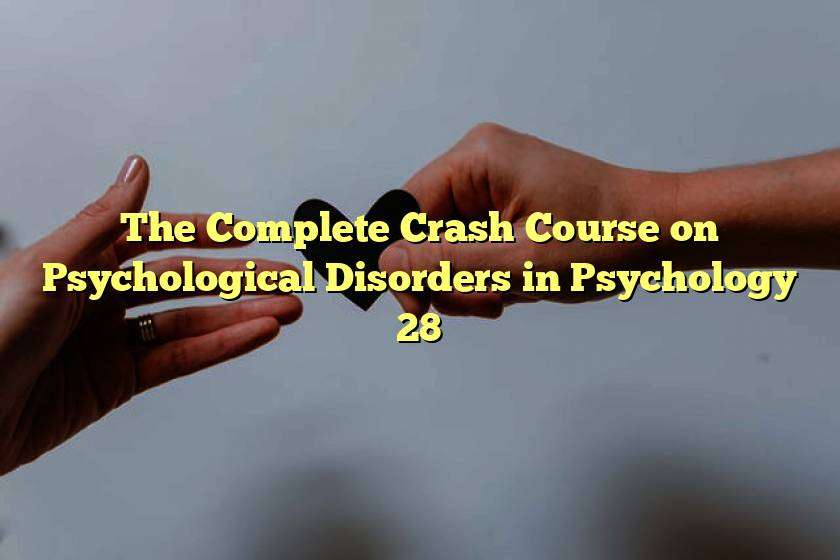Are you interested in learning about the fascinating world of psychological disorders? If so, you’ve come to the right place. In this comprehensive crash course, we will cover everything you need to know about psychological disorders and their impact on individuals and society.
Introduction to Psychological Disorders
Psychological disorders are a complex and often misunderstood area of psychology. Many people assume that individuals with psychological disorders are simply "crazy" or violent, but this couldn’t be further from the truth.
In fact, psychological disorders are typically characterized by patterns of abnormal behaviors, thoughts, and feelings that can be distressing or disabling for individuals and interfere with their ability to function in daily life.
Common Psychological Disorders
There are many different types of psychological disorders, each with their own unique symptoms and diagnostic criteria. Some of the most common psychological disorders include:
Anxiety Disorders
Anxiety disorders are characterized by excessive and persistent feelings of fear, worry, or dread that can be triggered by a variety of situations or stimuli. These disorders can include generalized anxiety disorder, panic disorder, and phobias.
Mood Disorders
Mood disorders, such as depression and bipolar disorder, are characterized by persistent feelings of sadness, hopelessness, or emptiness. These disorders can significantly impact an individual’s ability to function in daily life and can even lead to suicidal thoughts or behaviors in severe cases.
Personality Disorders
Personality disorders are characterized by enduring patterns of behavior, thought, and emotions that are deeply ingrained and maladaptive. These disorders can include borderline personality disorder, antisocial personality disorder, and narcissistic personality disorder.
Schizophrenia and Psychotic Disorders
Schizophrenia and psychotic disorders are characterized by a range of symptoms, including delusions, hallucinations, disordered thinking, and impaired social functioning. These disorders can be particularly challenging to treat, and individuals with these disorders often require long-term support and care.
Diagnosis and Treatment of Psychological Disorders
Diagnosing and treating psychological disorders can be a complex and challenging process. In order to make an accurate diagnosis, mental health professionals typically rely on a combination of interviews, psychological assessments, and medical tests.
Once a diagnosis has been made, treatment can begin. Depending on the specific disorder and the severity of symptoms, treatment may include psychotherapy, medication, or a combination of both.
The Importance of Understanding Psychological Disorders
Understanding psychological disorders is incredibly important for a number of reasons. First and foremost, it allows us to help those who are struggling with these conditions to get the support and treatment they need to lead fulfilling lives.
Additionally, understanding psychological disorders can help to reduce stigma and misconceptions surrounding these conditions. By increasing awareness and empathy, we can help to create a more accepting and supportive society for those with psychological disorders.
Conclusion
In conclusion, psychological disorders are a complex and challenging area of psychology that deserves our attention and understanding. By learning more about these conditions and the impact they can have on individuals and society, we can work towards creating a more compassionate and inclusive world.
So, whether you’re a psychology student, a mental health professional, or simply someone interested in learning more about psychological disorders, we hope this crash course has been informative and valuable.
